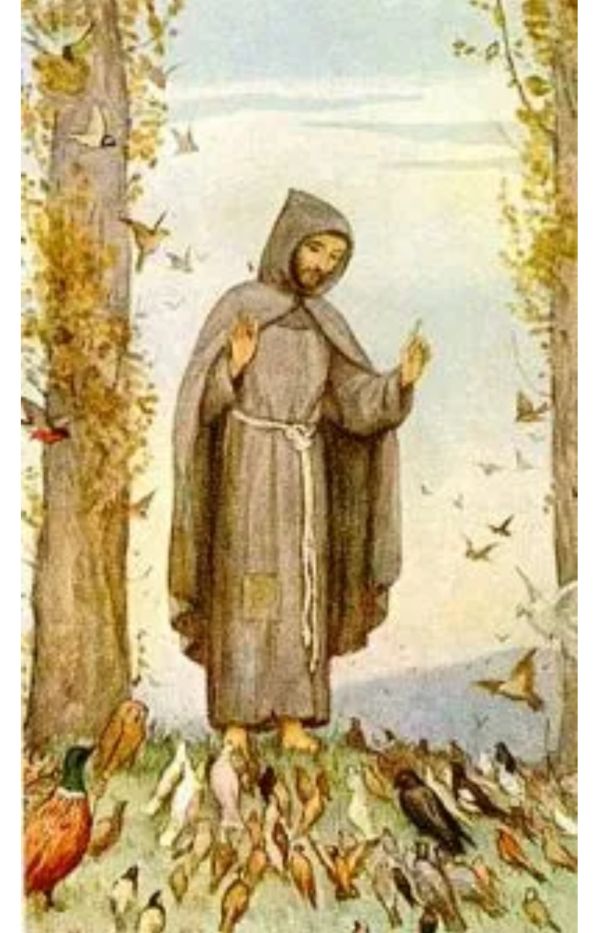Two masters: what outlet for what we carry inside
(Mt 6:24-34)
How to avoid selling oneself for an idol, and not commit suicide by subjecting the breath of the soul to something ephemeral, instantaneous and partial?
Identifications, calculation of interests and artificial material goods empty the Core of being and do not show the solution.
The experience of Fatherhood in Faith is the sacred place that recovers the meaning of the original life; the vital intuition, of nature, that illuminates what’s appropriate to pursue in order to overturn the doubtful or shrunken existence.
Awareness of agreement with the natural order grafts more lymph.
Cosmic vision helps us to direct the forces that emerge, revolutionizes hopes, nourishes boldness, suggests the orientation of events in uniqueness, and sublimates the same quality of coexistence.
The «son» who notices others and doesn’t accumulate, does not lose anything - but acquires another march: he experiences a Father who takes care of his own history, and expands his life by building even on the dark sides.
The believer aware of being accompanied always manages to take another step.
He knows that nature spontaneously fills the voids, and it does so with a mysterious and supreme wisdom of balances.
Only on this new territory do we become solicitous of the great themes, but without the anxiety that bewilders us.
We gladly accept even the precariousness and situations of weakness: nourished by God’s ‘rest’ - and as in His ‘rural rhythm’ - we know that our needs and defects hide the most beautiful surprises of the journey.
The scene of the examples Jesus draws from nature is an echo of the conciliatory life dreamt for us by the Father.
It introduces the quintessence of Happiness from within. Joy that makes one aware of existing in all personal reality.
A paradoxical intuition of fullness of being, in the limit that belongs to us - which then overcomes the fear of not living up to it.
In fact, the Gospel passage shows the value of genuine, silent, inconspicuous things, which however live in us - they are not "shadows". And we perceive them without effort or brain commitment.
We often ask ourselves whether God really participates in our doubts, expectations and torments, or vice versa indifferent.
Sometimes even the Psalms seem to make blasphemous accusations to the Eternal, which impute Him of little attention to the events of the righteous.
Even great saintly figures experienced serious upheavals; anxieties and trepidations that were long hidden, because [in a framework of conformist serenity] they were considered unedifying.
Instead it’s quite normal - indeed, healthy and profitable - to feel the old hopes waver, and welcome in full the failures, negative emotions or other clouds that surround us.
The problem is that from an early age we are accompanied by the instinct of the search for security, and unfortunately in many cases we try to have the same attitude even in the path believer.
On the contrary, life in the Spirit detach itself - flowing into the more of the Faith and the Mystery, which ‘work’.
The Way proposed by Jesus has a non-moralistic tone, devoid of complexes, in view of the dedication to Today’s missionary life and the harmonious growth of belonging to the Faith at various levels (all to be discovered).
In its quiet power, here is the astonishment that doesn’t kill the soul. And the natural world has the keyword.
[Saturday 11th wk. in O.T. June 22, 2024]












